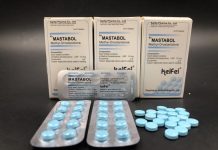In the competitive world of academia, maximizing lab performance is crucial for achieving research goals and ensuring academic success. Whether you are a seasoned researcher or a graduate student, implementing effective strategies can enhance productivity, collaboration, and overall lab efficiency. Here are several tips to boost lab performance and promote a thriving academic environment.
1. Set Clear Goals and Objectives
Define Research Aims
Establish clear, specific, and measurable goals for your lab. Define the key research questions you aim to answer, and set achievable objectives that guide your work. This focus provides direction and helps prioritize tasks.
Create a Roadmap
Develop a roadmap that outlines the steps needed to achieve your objectives. Break down larger goals into manageable tasks, assigning deadlines to keep the lab on track and maintain momentum.
2. Foster a Collaborative Environment
Encourage Teamwork
Promote a culture of collaboration by encouraging open communication and teamwork among lab members. Collaborative efforts can lead to innovative solutions and enhance the overall quality of research.
Schedule Regular Meetings
Hold regular lab meetings to discuss progress, share ideas, and address challenges. These gatherings provide opportunities for feedback, brainstorming, and building a sense of community within the lab.
3. Utilize Efficient Lab Management Practices
Organize Workspaces
Maintain a clean and organized lab environment. Ensure that workspaces are tidy, equipment is properly stored, and materials are easily accessible. An organized lab reduces distractions and enhances efficiency.
Implement Standard Operating Procedures (SOPs)
Develop and enforce standard operating procedures for common tasks. SOPs provide clear guidelines for lab protocols, ensuring consistency and reducing the likelihood of errors.
4. Leverage Technology and Tools
Use Lab Management Software
Consider using lab management software to streamline operations, track experiments, and manage data. Tools like LabArchives, Benchling, or LabArchives enhance collaboration and improve data organization.
Automate Routine Tasks
Identify repetitive tasks that can be automated, such as data entry or sample tracking. Automation frees up time for researchers to focus on more complex and meaningful aspects of their work.
5. Provide Training and Development Opportunities
Offer Skill Development Workshops
Organize workshops and training sessions to enhance the skills of lab members. Topics may include new techniques, software tools, or safety protocols. Continuous learning fosters growth and keeps the team updated on best practices.
Encourage Peer Mentoring
Implement a peer mentoring program where experienced researchers guide less experienced lab members. This approach promotes knowledge sharing and builds a supportive learning environment.
6. Monitor Progress and Provide Feedback
Track Lab Performance
Regularly assess lab performance by tracking key metrics, such as project timelines, data quality, and publication output. Monitoring progress helps identify areas for improvement and ensures accountability.
Offer Constructive Feedback
Provide timely and constructive feedback to lab members. Encouraging discussions about successes and challenges fosters a culture of continuous improvement and motivates individuals to strive for excellence.
7. Promote Work-Life Balance
Encourage Breaks and Downtime
Encourage lab members to take regular breaks to recharge and avoid burnout. A healthy work-life balance improves overall productivity and creativity, leading to better research outcomes.
Support Flexible Work Arrangements
Recognize that individuals may have different working styles and preferences. Supporting flexible work arrangements can enhance job satisfaction and productivity within the lab.
8. Celebrate Achievements
Recognize Contributions
Acknowledge and celebrate the achievements of lab members, whether they are small milestones or major accomplishments. Recognition boosts morale and fosters a positive lab culture.
Share Success Stories
Highlight successful projects or breakthroughs in lab meetings or newsletters. Sharing achievements not only motivates the team but also showcases the lab’s impact within the academic community.
Conclusion
Boosting lab performance is essential for academic success and can be achieved through a combination of clear goal setting, collaboration, efficient management practices, and continuous development. By implementing these strategies, researchers can create a productive and innovative lab environment that enhances both individual and collective performance, ultimately leading to significant contributions to the field of study. Embrace these tips to elevate your lab’s performance and drive academic excellence.






